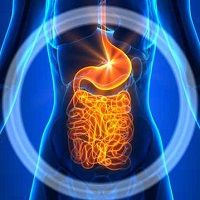Fecal Microbiota Transplants Sends Ulcerative Colitis Patients to Remission
Using fecal microbiota transplants (FMT) has sent ulcerative colitis (UC) patients into remission, reported a presentation given at the European Crohn’s and Colitis Organization (ECCO) Congress.

Using fecal microbiota transplants (FMT) has sent ulcerative colitis (UC) patients into remission, reported a presentation given at the European Crohn’s and Colitis Organization (ECCO) Congress.
As such, in order to determine the efficacy of microbial manipulation on UC remission, researchers from Australia performed intense, multi donor FMT in 81 UC patients. Prior research showed FMT was beneficial for UC patients.
Patients with active UC who were resistant to standard treatments received a single FMT or placebo colonoscopy infusion on day one, followed by either FMT or placebo enemas five times per week for eight weeks. Each enema was developed from three to seven unrelated donors. The researchers measured the patients’ rectal bleeding, stool frequency and endoscopic appearance after the full eight weeks, in addition to their clinical response, quality of life and safety.
The researchers reported that steroid free clinical remission and endoscopic remission or response was reached in 11 of 41 FMT patients (27 percent) compared to just three of 40 placebo patients (8%). The rate of steroid free clinical remission was 44% vs. 20%, respectively, while the rate of clinical response was 54% vs. 23%, respectively.
Additionally, the rates of steroid free endoscopic remission and endoscopic response rates were 17% vs. 8% and 37% vs. 10%, respectively.
The investigators did not report any observable differences in adverse events between the two study arms. There were three serious adverse events reported, including two cases of worsening colitis in the FMT treatment group and one in the placebo group. One of the worsening UC patients in the FMT group required colectomy for severe UC, the researchers said.
When the therapy concluded, patients in the placebo group were offered eight weeks of open label active treatment. Of the 40 patients in the placebo group, 37 went on to participate in open label FMT.
Ten of those patients (27%) then reached steroid free clinical remission with endoscopic remission response; nearly half experienced clinical remission (17 patients), and nine of those patients (24%) experienced endoscopic remission. These were consistent with the blinded FMT outcomes, the researchers explained.